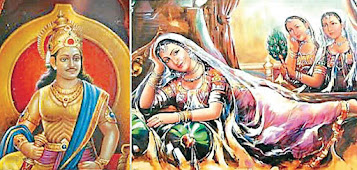Story of India
The story of India is a long and complex one, spanning thousands of years of history, culture, and civilization. The Indian subcontinent has been inhabited by various groups of people since prehistoric times, with evidence of early human settlements dating back to the Paleolithic era.
The ancient Indus Valley Civilization, which emerged around 2600 BCE, is one of the earliest known urban civilizations in the world. Its cities, including Harappa and Mohenjo-Daro, had well-planned layouts and advanced systems of drainage and sanitation. The Indus Valley Civilization thrived for several centuries before declining and eventually disappearing around 1900 BCE.
In the centuries that followed, the Indian subcontinent was ruled by a series of powerful empires and kingdoms, including the Mauryan Empire (322–185 BCE), the Gupta Empire (320–550 CE), and the Mughal Empire (1526–1857). These empires were characterized by impressive achievements in art, architecture, literature, and science, as well as sophisticated systems of governance and administration.
During this time, India also saw the emergence of several major religions, including Hinduism, Buddhism, Jainism, and Sikhism. These religions, along with others that came later, have had a profound impact on Indian culture and society.
In the 18th and 19th centuries, India came under the control of the British East India Company, which gradually expanded its influence and power over the subcontinent. This period of British colonial rule was marked by significant economic, social, and political changes, including the introduction of modern transportation and communication systems, the establishment of English as a major language, and the spread of Western education and ideas.
India gained its independence from Britain in 1947, after a long and difficult struggle led by figures such as Mahatma Gandhi, Jawaharlal Nehru, and Subhas Chandra Bose. Since then, India has emerged as a vibrant and diverse democracy, with a rapidly growing economy, a rich cultural heritage, and a complex political landscape.
Today, India is home to over 1.3 billion people, making it the second-most populous country in the world. It is a land of incredible diversity, with over 2,000 ethnic groups and more than 1,600 languages spoken. India is known for its rich cuisine, colorful festivals, vibrant music and dance traditions, and iconic landmarks such as the Taj Mahal and the Red Fort. is a long and complex one, spanning thousands of years of history, culture, and civilization. The Indian subcontinent has been inhabited by various groups of people since prehistoric times, with evidence of early human settlements dating back to the Paleolithic era.




.jpg)


Comments
Post a Comment